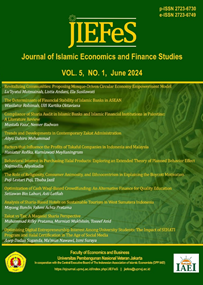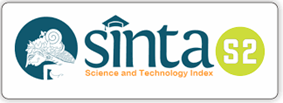Trends and Developments in Contemporary Zakat Administration
DOI:
https://doi.org/10.47700/jiefes.v5i1.7952Keywords:
Trends, Zakah, Contemporary Development, AdministrationAbstract
Zakat is a third pillar of Islam and has been considered as the mainstay of Islamic economics. It comes at the center of the five pillars of Islam, which some scholars interpret as providing balance between ibadat (worship) and muamalat (day to day human transactions). Historically it provides solutions to economic problems of the Muslims society. However, its application is reduced to individual levels with limited impact in many parts of the world. In the recent times, there is revival of the institution of zakat. Thus, the paper examines the contemporary developments on zakat particularly its potential and applications in Muslim countries and communities. The methodology adopted is content analysis with critical review of the literature. Secondary data were sourced from reports covering 2014 to 2020. The data was specifically analyzed based on the trends and potentials of zakat in Asia, Sub-Saharan Africa, North Africa and the Russian Federation. The paper finds that, zakat in many Muslim jurisdictions has the potential of alleviating poverty and drastically reducing income inequality based on international standards. The implication of the study is that Muslim countries and communities should revive zakat and apply it in their mainstream economic system to solve their socio-economic problems.
References
Abu Yusuf (1397AH) Kitab al kharaj, Cairo, al-Matba al-Salafiyya.
Alsamarrai and Al Trebasis (2013) Needs Assessments of the zakāh Institutions (edit) in Zakāh and Contemporary Management: Multifaceted Issues and Challenges, IKAZ, UiTM.
Association of Muslim Social Scientists (1980) Some Aspects of the Economics of Zakāh: Proceedings of the Conference on the Economics of Zakāh, American Trust Publications, Indianapolis, Ind.
Awad, M. (1985). Adjusting Tax structure to accommodate zakāh,
ElAsker, A and Sirajul Haq, M. (1995) International Framework of Zakāh: Dimensions and Implications, IRTI
Fiqh Al-Zakāh: A Comprehensive Study of Zakāh Regulations and Philosophy in the Light of the Qurʼan and SUnnah
Forbes (2017). The Worlds Billionaires accessed at https://www.forbes.com/billionaires/list/2/#version:static
Ghazali, N. Arshad, R. Noor, A. and Zain, M. (2013).Zakāh Reporting Practices in the State Islamic Religious Council: Exploratory Study. Proceedings, KL
Hannani, S1985) The obligation of ushr and its rules Zakāh and Ushr, Islamic Economics Research Bureau, Dhaka.
Haque, M. Nasri, R. Nuraini and Yusuf, M. (2016) Measurement Optimization of Zakāh Distribution at Lembaga Amil Zakāh Using Variable Measurement of Economy, Journal of Islami monetary Economics and Finance, Volume 2, Number 1.
http://www.islam/qa.com/index.php?In=ara&ds=qa&QR=50801
Imtiaz et.al Management of Zakāh in Modern Muslim Society, IRTI
Imtiaz, I. Mannan, M. Niaz, M. Deria, A. (2000) Management of Zakāh in Modern Muslim Society, IRTI.
IRTI (200) Proceedings of First Seminar on Zakāh in Modern Muslim Society, IRTI, IDB
Islamic Social Finance Report (2014). Islamic Research and Training Institute, Islamic Development Bank, Jeddah.
Islamic Social Finance Report (2015). Islamic Research and Training Institute, Islamic Development Bank, Jeddah.
Islamic Social Finance Report (2017). Islamic Research and Training Institute, Islamic Development Bank, Jeddah.
M. Kahf, 1999 The performance of the institution of zakāh: Theory and practice, International Conference on Islamic Economics: Towards the 21stCentury
Management of Zakāh in Modern Muslim Society (1989) Papers Presented to the First Seminar on Management of Zakāh in Modern Muslim Society Held in Karachi, Pakistan During 02-12 Sha'aban 1405 H (22 April-02 May 1985)
Musa, A., Arifin, M.S., Abdullah, S. (2007), Exploration of New Sources of Zakāh in Malaysia. A paper presented at National ZakāhAnd Tax Conference, p73-82.
Munawar Iqbal, 1985Zakāh, Moderation and aggregate consumption in an Islamic Economy Journal of Islamic Economics, vol.no1
Noor, A..Abdul Rasool, M. Ali, M and Abdul Rahman, R. (2015). Efficiency of Islamic Institution, Empirical evidence of Zakāh Organizations` Performance in Malaysia, Journal of Economics, Business and Management, Vol. 3, No. 2, February 2015
Noor, A. Bahrom, H., Salleh, A. Ridzuan, A. Othman, A. Hassan, Z. Ali S. Rafien, N. Ismail, M. Atan, A. (2013) Zakāh and Contemporary Management "Multifaced Issues and Challenges, Zakāh Research Institute (IKaz)
Othman, J. (1985) Zakāh a case study of Malaysia, paper presented at at the third International conference on Zakāhkuala lumpur
Rafien, N. Noor, A. Ab Hassan, Z. And Othman, A (2013) Not-for-Profit Religious Organization in Malaysia: A Case on Zakāh Institution, edited proceedings Islamic Philanthropy for Ummah Excellence, Kuala Lumpur, Malaysia.
Saad et al (2016) Zakāh Surplus Management, International Journal of Economics and Financial Issues, Vol. 6, special issue.
Sadeq, A (2002). A Survey of the Institution of Zakāh: Issues, Theories and Administration, IRTI Discussion Paper No. 11
Salama, A. (1990). Fiscal Analyses of Zakāh with specific reference to Saudi Arabia experience in Mohammed Arif (edit) Monetary and Fiscal Economics
Salama, A (1990) Voluntary and Compulsory Applications of Zakāh: A Case study of Sudan 1405-1410AH, paper presented at at the third International conference on Zakāh Kuala Lumpur
Sentruk, O. F. (2008).A Comprehensive Guide to Zakāh Charity in Islam, The Light Inc, USA
Uthaimain,(2013) zakaatir-raatibul-muwazzaf (13thfeb.2013)
Wahab, M. Aljunaids, Omar, M. Ghazali, A. Osman, J. Arif, M. () History, Organization, Adminstration and Legal Framework of Zakāh in Malaysia, Institutional Framework of Zakāh Administration, IRTI
Waihari, M. (1991), Zakāh: Its Role in Wealth Enrichment. Kuala Lumpur: Pustaka al-Mizan.
Zamery, Mohammed (2005) The Role of zakāh in Risk Management for the poor
Internet:
www.baznas.com.id
www.sanzaf.org.za
www.sanzaf.org.za
www.zakāh.com.my
www.zakāh.org
www.zakāhandsadaqat.org.ng
www.icmf.org/24k4takaful.com
Downloads
Published
Issue
Section
License
Copyright (c) 2024 Aliyu Dahiru Muhammad

This work is licensed under a Creative Commons Attribution 4.0 International License.
Authors who publish with this journal agree to the following terms:
- Authors retain copyright and grant the journal right of first publication with the work simultaneously licensed under a Creative Commons Attribution 4.0 International License that allows others to share the work with an acknowledgment of the work's authorship and initial publication in this journal.
- Authors can enter into separate, additional contractual arrangements for the non-exclusive distribution of the journal's published version of the work (e.g., post it to an institutional repository or publish it in a book), with an acknowledgment of its initial publication in this journal.
- Authors are permitted and encouraged to post their work online (e.g., in institutional repositories or on their website) before and during the submission process, as it can lead to productive exchanges, as well as earlier and greater citation of published work.

This work is licensed under a Creative Commons Attribution 4.0 International License.











